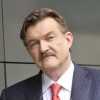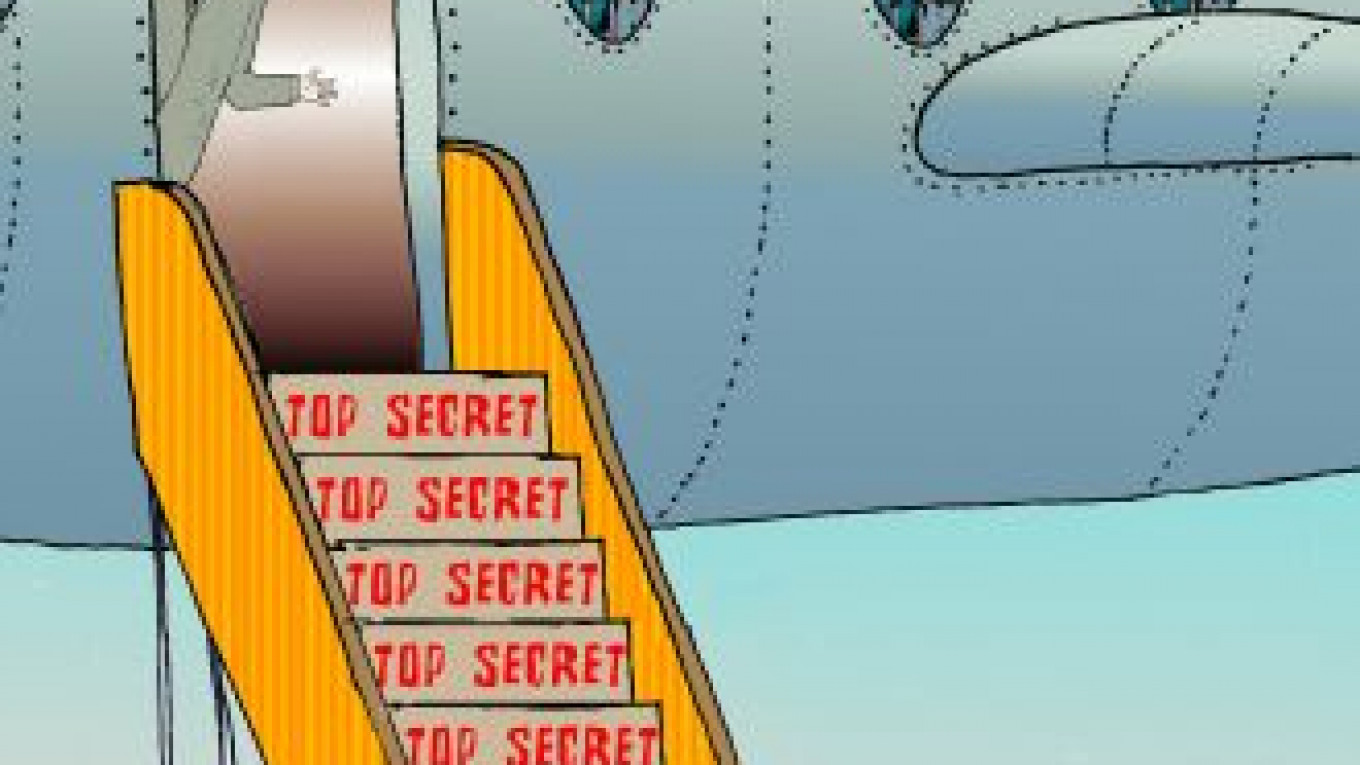By an interesting coincidence, former Yukos CEO Mikhail Khodorkovsky both lost and regained his freedom on airplanes. He was arrested Oct. 25, 2003 when Federal Security Service agents stormed his plane immediately after it landed in Novosibirsk. He regained his freedom on a plane 10 years and two months later — the moment the doors closed on the Cessna aircraft that carried him to Berlin and left his police escort behind.
For years, I have been resigned to the fact that we would have to wait an extremely long time for this happy occasion, at least as long as President Vladimir Putin remained in power. However, fate decreed that, contrary to the all-pervasive pessimism, Khodorkovsky was released now.
Putin's unexpected decision to pardon Khodorkovsky was not only completely out of character for him, but it differed markedly from the decision by former Soviet leader Mikhail Gorbachev to begin his democratic reforms in the late 1980s by releasing dissident Andrei Sakharov from his exile in Gorky, now Nizhny Novgorod, in 1986.
From the details that Khodorkovsky shared during his first interview in Berlin on Sunday, we know that his release was a typical special operation. That is about the same way former Soviet leader Leonid Brezhnev sent Alexander Solzhenitsyn and other dissidents from prison into exile abroad. As in Khodorkovsky's case, the freeing of Soviet dissidents were often made with the assistance of influential Western intermediaries whose role became known to the public only later.
In 1983, former U.S. President Ronald Reagan made an interesting statement: "We are conducting a quiet diplomatic game for the release of Andrei Sakharov. The Soviets cannot stand it if we make such demands publicly. They will never give in for fear of losing face."
Little has changed in the past 30 years. From the initial clues available, the "quiet diplomatic game" to free Khodorkovsky lasted at least two years and involved German Chancellor Angela Merkel, former German Foreign Minister Hans-Dietrich Genscher, German industrialist Ulrich Bettermann, who provided the plane for Khodorkovsky's brisk exit from Russia, and Alexander Rahr, the famous scientific director of the German-Russian Forum think tank who has good relations with the Kremlin.
We might never know exactly what prompted Putin to soften his resolve and release Khodorkovsky. Putin is a leader known for his callousness, vindictiveness and, at times, paranoia. What's more, it was Putin who in one of his expanded news conferences answered a question about Khodorkovsky by saying "a thief should sit in prison." And it was Putin who showed outright sadism when former Yukos vice president Vasily Aleksanyan laid chained to his bed in the prison infirmary, blind and dying a slow, painful death from AIDS-related cancer.
Khodorkovsky is unlikely to provide sensational revelations with whatever details he might know about this "quiet diplomatic game." He must remain extremely guarded and cautious. As he has said repeatedly, Khodorkovsky left people behind in Russia who are practically hostages to the ruling regime. They include co-defendant Platon Lebedev, whose prison term will end in several months, and Alexei Pichugin, who is currently serving a life sentence.
I do not believe the theory widely discussed in the media that Putin issued his pardon to improve his image to the outside world. If there were true, he would not have recently appointed Dmitry Kiselyov — the odious and venomously anti-Western commentator from state-owned Rossia 1 television who shamelessly distorts the facts — as the new director of a new state media company. If anything, Putin has held foreign public opinion in contempt over the past 13 years.
Putin can hardly have believed that by pardoning Khodorkovsky he could stem the wave of Western leaders who have publicly refused to attend the Olympic Games in Sochi. As for the Group of Eight summit that will be held in Sochi in June, Putin has every reason to believe that it will business as usual. After all, the last G8 summit in Russia, held in St. Petersburg in 2006, were held without any protests from leaders, despite the fresh memories of the first trial against Khodorkovsky, as well as the blatantly corrupt "auction" that transferred Yukos' main assets to completely unknown Baikal Finance Group, which had 10,000 rubles ($300) in share capital. Several days later, Rosneft acquired Baikal Finance Group.
Khodorkovsky has undoubtedly won a great moral victory. All these years, Putin insisted that the former oil tycoon admit his guilt unless he was prepared to endure new charges and an indefinitely long prison stay. But in the end, Putin gave in, deciding to pardon him without demanding either a public or private confession.
But why did Putin concede?
One popular theory is that, in exchange for Khodorkovsky's release, Yukos shareholders agreed to withdraw their claims in international courts against Russia to recover lost profits, a case they stand a good chance of winning. The Kremlin risked losing $100 billion in damages in the Yukos takeover, and a court decision against Russia would have been a serious blow to its global reputation. But Khodorkovsky and former shareholders deny that there was any deal made over this ongoing legal case against Russia.
After speaking personally with Khodorkovsky just days ago in Berlin, I left with the strong sense that the reason for his release is as much an agonizing mystery to him as it is to almost everybody else.
And no sooner had Khodorkovsky walked free than Vyacheslav Lebedev, chairman of the Russian Supreme Court that had previously frustrated every attempt by Khodorkovsky's lawyers to achieve justice, "unexpectedly" called for a review of both the first and second cases against Khodorkovsky.
Is this the start of a trend? Could those commentators be right when they say even the most stubborn and cruel authoritarian rulers and regimes must eventually "loosen the screws" when faced with mounting economic and social problems?
It is too early to conclude that a thaw has come to Russia's long political winter, but then again, you never know.
Yevgeny Kiselyov is a political analyst and television journalist.
A Message from The Moscow Times:
Dear readers,
We are facing unprecedented challenges. Russia's Prosecutor General's Office has designated The Moscow Times as an "undesirable" organization, criminalizing our work and putting our staff at risk of prosecution. This follows our earlier unjust labeling as a "foreign agent."
These actions are direct attempts to silence independent journalism in Russia. The authorities claim our work "discredits the decisions of the Russian leadership." We see things differently: we strive to provide accurate, unbiased reporting on Russia.
We, the journalists of The Moscow Times, refuse to be silenced. But to continue our work, we need your help.
Your support, no matter how small, makes a world of difference. If you can, please support us monthly starting from just $2. It's quick to set up, and every contribution makes a significant impact.
By supporting The Moscow Times, you're defending open, independent journalism in the face of repression. Thank you for standing with us.
Remind me later.







